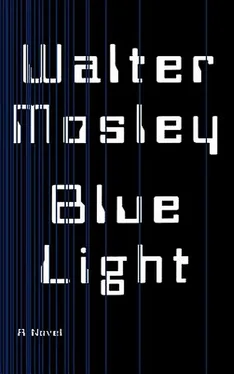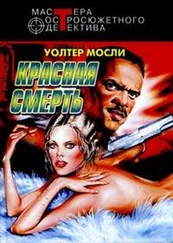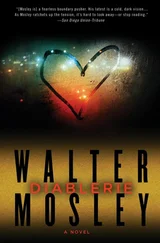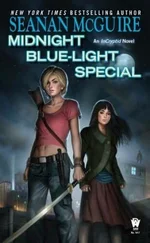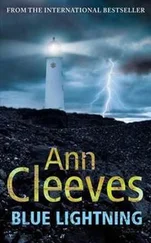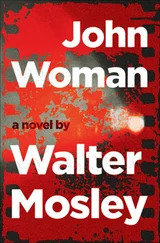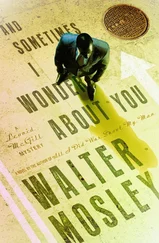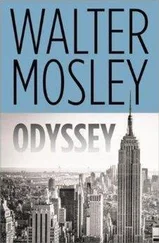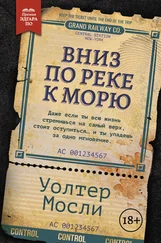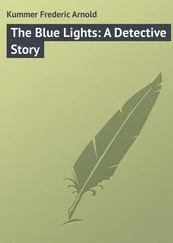Along the bark of the tree butterflies of all kinds spread their multicolored wings.
A forest ranger, Esther O’Halloran, was standing next to the great tree, obviously perplexed. She had taken off her brimmed hat to massage her head and ponder. She didn’t know that a bright pair of eyes was watching her wonder.
She tried to frighten a few of the butterflies away, but they barely moved as she waved her gloved hand around their papery wings.
The ranger knelt down to study the ground around the great tree. There were ants milling and caterpillars and walking sticks moving in their long and rigid dance. There were vole holes all along the ground. Spiderwebs were everywhere except on the tree itself. A blurred, furry flash moved quickly across her peripheral vision and she turned, catching sight of the foxtail as it disappeared into the thicket.
She smiled at the fox.
Esther pulled away a few monarchs to place her palm against the bark. She smiled again, tickled by the slight vibrations that sounded out like a kettledrum to the one that watched her.
“You should be more careful out in such a wild place,” the watcher declared.
She turned to see a short man dressed in a one-piece garment that was a patchwork of cloths and furs, metal and wood, and, in places, bone and clay.
“What?” Esther demanded. “What are you doing here?”
The fox darted out of hiding, running straight for the strange man. Arriving at his feet, she started licking his fur boots.
“I was asleep,” the man said. “In the flatbed of a truck. And then I had three dreams, all in a row. The first one was my mother, the second one was my father, and the last one was me.”
The man smiled and walked toward the forest ranger. The fox scuttled along, licking and yipping. The man came to stand before Esther. They were about the same height.
A black-and-gold monarch lit on his red-brown forehead.
“I woke up,” he said to her, the slightest trace of a Mexican accent rising like vapor between his words. “And looked in my pocket. I found a card for driving that had my picture on it and the name Hidalgo Quinones. But that’s not me.”
“Who are you, then?”
“My name,” the man said, watching her eyes, “is Juan Thrombone. Thrombone with an aitch.”
More butterflies landed on Juan’s head and shoulders. He smiled at her.
“What do you mean ‘dangerous’?” Esther asked, taking a step backward.
“Dangerous?”
“That’s what you said.”
“No. I didn’t say dangerous. It is dangerous. Yes, it is. But I didn’t say that, no, I didn’t. I said ‘wild.’ This is a wild place. A place too strong for anyone who cares more about living than they do about what they might find.”
Esther looked closely in the little man’s eyes. Maybe , he thought, she thinks I’m crazy .
A raven flew up, landing on the ground near them.
“You see, this is a strong place,” Juan said. “It’s a very, very strong place, but it is dying. Soon it will be gone. Destroyed. That’s why I’m here.”
The crazy-quilt man reached into a makeshift tarp bag that hung from his shoulder. He opened the bag to show Esther an egg-sized cone that bore the seed of the great tree.
“She wants them to grow, but they will not. Not until the true equations move her. But she called and I came because it is only the forest and I who can live without hunting. But even these seedlings will go off to war one day, I’m afraid,” Juan said. “Until then I will treat them as my children.”
“You can’t take them.”
“Why not?”
“This is government property. I’m a ranger. You can’t take my trees.” While she spoke, Esther watched the Mexican’s eyes. They were black at first but then came to be blue. Bright blue. The kind of bright that glass gets on a sunny windowsill. I have never spoken to her, but I’ve also seen those eyes.
He left her standing there, looking out where he’d been. There were butterflies all over her. White cabbage butterflies on her cheeks and hands. Down her collar. Up under the cuffs of her uniform pants.
He never slept more than a few minutes at a time but was rarely tired. He was in constant pain, but that was the least of his discomfort. His lower lip was now a leather flap, and his right eye had a patch instead of a lid. The flesh of his face had been shredded and scarred, but he didn’t spend long enough in the hospital to find out about plastic surgery for his bones and skin.
Miles Barber had gone from detective to freak in an instant, but he didn’t appreciate the change. The last thing Barber remembered was crouching down among the shrubs of Garber Park and hearing a loud scream.
In the hospital the doctors and police told him that he was the victim of a brutal ritual performed in the park by a drug-dealing cult, the Close Congregation. They told him that he’d been butchered and left to die.
Miles Barber didn’t remember getting up that morning, but he knew that there had been no ritual.
“Bullshit,” he said to the doctors.
“Are you crazy?” he asked his old cop friends.
As soon as he was able, ex-Detective Barber checked himself out of the hospital. Family, friends, and physicians tried to stop him. But he didn’t care about health or what people saw when they looked at him. He didn’t care about what they saw, because the images in his mind were so much worse than disfigurement or physical pain.
Gray Man had laid the imprint of death, in the darkest blue imaginable, upon Miles Barber’s soul. I had felt the same thing when Death jostled me, but I had Ordé’s blood to buffer the pain. Barber had nothing but innocence.
He rarely slept, but whenever he let his mind drift he fell into a cold gray swampland of entropy and despair. If he wasn’t careful, he’d drift all the way into a coma. This happened twice while he was in the hospital, and he had to be revived with powerful amphetamines.
But Miles Barber didn’t spend much time daydreaming after leaving the hospital. He tracked down the Close Congregationalists and interviewed every survivor, hoping to find out the devil’s name and address. Because Barber was on a hunt for the evil that destroyed all the hope and heart in him. He had taken it as his mission to kill the man who had touched his soul.
During the months that he shadowed the congregation looking for Mack the Flask, he never paid much attention to our philosophies or beliefs. “Blue light, white elephant, or Christ on a fuckin’ cross,” he once said to me. “It’s all the same nonsense.” But now he understood that what we believed had drawn Gray Man.
While I was hiding in the northern woods, he was gathering almost as much information as I had on blue light, its chosen, its acolytes, and its meaning.
He had taped accounts of most of Ordé’s speeches from these interviews. He had gotten nearly all of the Blues’ names. He wanted to interview one of the chosen, but they had all died or disappeared.
Neither could ex-Detective Barber find another person who had been touched by Death. All the rest who Gray Man had touched, on the day he murdered Ordé, had died in their sleep within the first week of the slaughter. The newspapers called it a virus that drug users got from sharing needles.
When Barber was through with his interviews he had four primary names on his list. There was me because of my close relationship to Ordé and my ramblings about death on the day they took me to jail. There was Claudia Heart (née Aaronfeld, married name, Zimmerman), who had started a commune out in the desert somewhere. There was a man whom no one had ever seen named Winch Fargo. Roberta Garcia remembered Eileen Martel mentioning him, about going to see him in jail. And there was also Gray Man, the devastator. Gray Man was the ultimate goal, the blood clot, the inoperable tumor. Gray Man was a reason to murder. The reason for a man who lived by the law to break that law finally and forever.
Читать дальше
